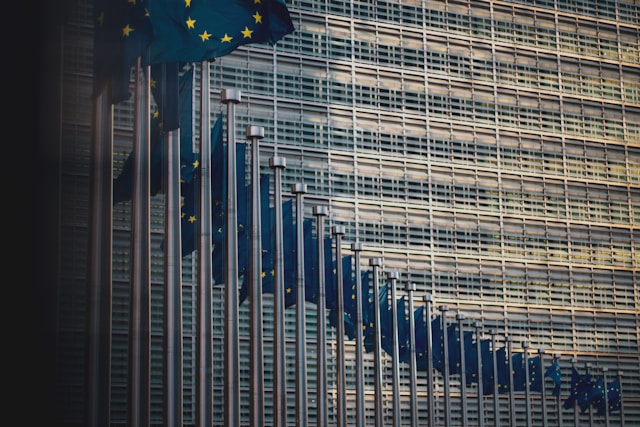.jpg)
Danish self-perception: “We are the champions” as to open administration
The Nordic countries are often inherently associated with openness and transparency as far as public administration is concerned. Openness is part of the stereotype Nordic “brand”. The brand is not surprisingly promoted by Danes with a tendency to take credit for being a pioneer within the field of open administration although history does not fully confirm that claim. Actually, the world’s first Freedom of Information Act is the Swedish one. Even when confronted with historical facts, however, Danes continue to claim that Denmark is a frontrunner in the battle against closed doors within the administrative house. In this respect, Danes suffer from not only from an occasional Freudian slip but from recurrent Freudian slips. As far as the facts are concerned, Sweden introduced in 1766 the right to public access to official documents as part of its Freedom of the Press Act. Thus in 2016, Sweden celebrated an impressive 250 year anniversary of access to documents. The basic rules on public access in Sweden is still to be found in the Freedom of the Press Act while restrictions and exceptions are contained in the Act on Access to Information and Secrecy. The other countries within the Nordic family, like many parts of the rest of the world, followed a couple of hundred years later. Finland adopted a law on access to information in 1951, Denmark and Norway in 1970, and Iceland in 1996. The Finnish act on access to information was thoroughly revised in 1999, the Norwegian act in 2006, and Icelandic act in 2010. Provisions in the constitutions of Finland, Norway and Sweden emphasize that access to information is of fundamental importance to democracy. Zooming in on Denmark, the Danish Freedom of Information Act, The Danish FOIA, (“Offentlighedsloven”) from 1970 has been revised on a number of occasions, most recently in 2013. The revised and current Act entered into force in 2014 and the Act is still relatively young but it has nevertheless been perceived as containing major setbacks to the actual state of transparent public administration. In recent years particularly to new controversial exceptions to the right to access to information have been intensively debated; section 24 on ministerial advice. Traditionally, the Danish FOIA has included two types of exceptions which aim to protect the internal political law making process. Firstly, a section stating that there is no right of access to preparatory work in the central administration before a Bill is presented for Parliament . This section occurs in the previous act and it has been included in the new FOIA unchanged. Secondly, the internal deliberation and discussions in the ministries have all along been concealed by a section about internal documents. The underlying argument is the idea that it should be possible to exchange preliminary thoughts and solutions within the civil service without risking publicity in the press. However, the definition of internal documents has fundamentally been changed in the new FOIA resulting in significant consequences. Previously, the crucial criterion was if the relevant document remained in the authority concerned or whether it was sent out of the house to another authority (department, agency etc.) or to an external stakeholder. As soon as the information ‘left the building’, it could no longer be classified as an internal document. This rather clear-cut definition has now been quitted in favor of a new criterion: whether or not the document concerned can be related to servicing the minister or not. The substance of the new section in question is as follows: “Section 24 (1): The right to access to information does not include internal documents and information shared at a time, where there is reason to assume that a minister may need advice on the matter, and the information is shared between ministries, between agencies, between a ministry and a subordinate agency, or between a ministry and an agency under another ministry” (my translation). Hence, the documents and information is now defined as internal even though it has been shared with various other authorities. It is not a precondition for applying the new exemption that the information actually has been used for ministerial advice. As long as there is a slight opportunity that the information at a later time could be presented to the Minister in connection with a case, it is falling within section 24. The specific types of information and documents that aim to be covered by the new rule on ministerial advice are explicitly mentioned in the white paper as well as in the explanatory notes. The examples are: a) advice from the civil service to the minister on potential problems in a given case and possible solutions, b) advice from the civil service in connection with preparation of political negotiations with e.g. other ministries or with the opposition in parliament, c) advice in connection with the minister’s participation in interpellations and inquiries in the parliament, d) advice in connection with the minister’s participation in meetings or telephone conversations with other ministers, e) the civil servant’s preparation and formulation of new Bills, f) assistance to the minister with answering parliamentary questions and g)the advice and assistance in connection with new political initiatives such as policy papers, reform programs, plans of actions and idea catalogues.
Turning to the employees within the administration: the civil service – an increasingly squeezed tomato in the salad
In the current Danish system of a politically neutral civil service, a number of factors challenge the neutrality and objectivity of civil servants. A variety of “scandal cases” involving Danish ministers and Danish top civil servants in recent years illustrates this. The problem has released a number of general initiatives to protect civil service from being whirled into the political combat and to clarify the role of civil servants. One of the ideas is to open the doors into the “room” of internal considerations and negotiations among politicians and top civil servants. A counter-argument is that such an initiative might strengthen the external perception of transparency but it might cause internal setbacks if the doors are wide opened. How to strike the balance is difficult to say, but the goal is to find balance. The major concern is that civil servants in a purely open-door-system will be exposed in a way that might satisfy the whish for more transparency but at the same time might hamper their neutrality. The Dutch experience with a relatively new Freedom of information Act with a strong plea for openness points according to Dutch discussions to this problem. The backdrop of the discussion of the current Danish Freedom of information Act includes of at least two general tendencies that arguably play a significant role. The political establishment is challenged by a new type of political parties and a new type of individual politicians: anti-establishment parties and politicians. This is a phenomenon that is seen in many countries. This causes a political climate that is difficult to manage for civil servants. Some political parties are overtly protest parties that will probably never be part of government and their interest in the maintenance of a civil service might differ from parties that have a long tradition of being part of single-party or in Denmark very often coalition governments. The civil servant system are perceived by populist parties as inherent parts of the political establishment and the overall respect of neutral civil servants might to some degree be in a diminishing phase in Denmark. The other tendency is very dominant and consist in the relative decline of the traditional media due to ministers- and politicians’ active and proactive use of social media. This is also causes new challenges as to the role of the civil service and the communication agenda in which civil servant take part. The political debate goes on at a much higher speed making it difficult for the civil servants to keep track and to function as effective advisers to ministers and politicians.
As a third factor that complicates the function of the civil servant system I reach the current call in Danish debate on transparency for fully open doors at all stages of interaction between ministers, politicians and civil servants. This call might in the autumn of 2023 be the outset of a potential new commission in Denmark entrusted with the task to revise the current Danish FOIA. At the time of writing the Danish Government is considering whether or not a legislative committee to revise parts of the FOIA should be established. The purpose of such an initiative would probably to revise specific parts of the current legislation and a specific would be the provisions of ministerial advice, the most sensitive provision vis-à-vis political advice given by civil servants. The debate in Denmark has for years revolved around this provision. There are pros and cons as to more openness. Within the field of public law the Danish FOIA is an important component of the big picture of and it plays an overall role of a guarantee for trust and public insight as to public administration. The Danish FOIA is a result of an immensely thorough preparatory legal process and the act as whole tries to strike an appropriate balance between legitimate public interests - on the one hand - in openness, insight and democratic control and legitimate systemic interest - on the other hand - in a space for confidentiality, for internal considerations and political negotiations.
Striking the balance: half-open doors
The most tricky question if the Danish FOIA is to be revised, is the provision on ministerial advice. There might be a need to open the doors but in order to protect the neutrality of civil servants the right to close the door must be maintained. If the public can demand an exposure of the internal consideration in highly political cases, the advice of the civil servants within this sensitive “inner room” will be perceived as political advice rather than professional advice. Some civil servants will probably be exposed in a way that will make it impossible for them to give advice to a changing government to the detriment of administrative continuity which is highly valued in Denmark. The internal considerations between ministers and top civil servants will be necessary to keep behind closed doors. If the doors are fully opened, one scenario would be that the advice of the civil servants would much more ambiguous and vague as a systemic countermeasure to openness. This has been stated by Danish civil servants as a logical counter-measure. Another scenario – which is difficult to detect but which definitely has a hold in reality – is that the working of civil servants will be oral and informal as a way of avoiding the negative effects of a possibility of tracking all written and formal considerations.
The task of revising the Danish FOIA is not an easy but the aim will be to strike a balance, not to opt for a legislative model with fully open doors. There might potential in my mind to clarify and simplify the current section on ministerial advice but to opt for a complete transparent model is not an ideal. A spillover effect in that case will be an erosion of the neutrality and functioning of Danish civil servant system which would be a change in the fundamental set up of Danish public administration.









.jpg)















.jpg)
.jpg)